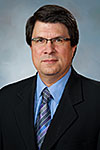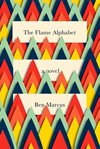Next UHV/ABR visiting author celebrated for his experimental writing
One reviewer of Ben Marcus’ novel “The Flame Alphabet” called the book part-fairy tale, part-horror story, part-literary dissection of these and a mutant worthy of the best experimenters.
Marcus believes that literary entertainment can arrive in ways readers have not seen before, such as his highly praised novel set in a world where children’s speech is lethal.
“I love some of the literary traditions that are well entrenched by now, because I love being engrossed by a carefully observed story, but I also love reading the unexampled, the crazy, the weird, the baffling, and if that work comes in unprecedented forms, so much the better,” Marcus said in Harper’s Magazine. “But it turns out that I don’t think I’m a very good crossing guard in the street war – if there even is one – about this supposed polarity in writing in any case. When I read for pleasure, I try to read what looks exciting, and in the end that’s just personal.”
Marcus will share his work April 7 at his University of Houston-Victoria/American Book Review reading. The event will take place at noon in the UHV University West Alcorn Auditorium, 3007 N. Ben Wilson St. The reading is free and open to the public.
Marcus, a professor at Columbia University in New York City, is the author of several books including a collection of short stories, “Leaving the Sea.” His fiction has appeared in Harper’s, Granta, Tin House and The New Yorker. He is the editor of New American Stories, an anthology of short fiction. Among his awards are the Berlin Prize and a Guggenheim fellowship.
“Ben Marcus is a gifted writer who has time and time again crafted fiction stories that readers can’t put down,” said Jeffrey Di Leo, ABR editor and publisher and dean of the UHV School of Arts & Sciences. “It will be fascinating to hear how these stories come together. I’m thrilled he’ll be joining us to share his work with our students and the community.”
In “The Flame Alphabet,” a terrible epidemic has struck the country. When Sam and his wife begin feeling sick, they’re not sure why. But when their teenage daughter, Esther, leaves the house, the couple recovers. The horrifying prospect dawns on them that their daughter’s speech is poisoning them. With Claire nearing collapse, it seems their only means of survival is to flee from Esther. On the eve of their departure, Claire mysteriously disappears, and Sam, determined to find a cure for this new toxic language, presses on alone into a world beyond recognition.
“I’ve always thought of language as extremely potent,” Marcus said during an interview on NPR’s All Things Considered. “It seems to change us at the chemical and biological level. When I think of it like that, it’s as though it’s a drug – and what would happen if we took too much of it, if it overwhelmed us and started to make us sick?”
Marcus’ latest story, “Cold Little Bird,” was published in October in The New Yorker. The story is about a 10-year-old boy who suddenly begins to withhold affection from his parents.
“It started with bedtime. A coldness. A formality,” Marcus writes to open the story. “Martin and Rachel tucked the boy in, as was their habit, then stooped to kiss him good night. ‘Please don’t do that,’ he said, turning to face the wall. They took it as teasing, flopped onto his bed to nuzzle and tickle him. The boy turned rigid, endured the cuddle, then barked out at them, ‘I really don’t like that!’”
The story examines what parents do when they love someone who stops loving them back. It has been praised for realistic dialogue and truthful look at the effects a child’s troubles can have on a family, though the subject matter has made for uncomfortable reading.
“We have a potentially terrible power over the people who love us – simply because of what they have come to need from us that we can withhold – and that problem seems even stickier and more upsetting with children,” Marcus said in a New Yorker interview “Children have a lot of latitude when it comes to cruelty in the home. What is just growth and independence and what is unendurable? The whole dynamic of a child lurching away from the fold feels fraught and mysterious. At least to me.”
The final author of the spring reading series is Charles Bernstein. His reading will be April 28.
Bernstein’s “Pitch of Poetry, New Essays” will be out this spring from University of Chicago Press. His most recent book of poems is “Recalculating.” He is the Donald T. Regan Professor of English and Comparative Literature at the University of Pennsylvania, where he is co-director of PennSound. In 2015, Bernstein was awarded both the Münster Prize for International Poetry and the Janus Pannonius Grand Prize for Poetry.
ABR is published six times a year. It began in 1977, moved to UHV in 2007 and has a circulation of about 8,000. The journal specializes in reviews of works published by small presses.
For more information about the UHV/ABR Reading Series, call the ABR office at 361-570-4101 or go to www.americanbookreview.org.
The University of Houston-Victoria, located in the heart of the Coastal Bend region since 1973 in Victoria, Texas, offers courses leading to more than 80 academic programs in the schools of Arts & Sciences; Business Administration; and Education, Health Professions & Human Development. UHV provides face-to-face classes at its Victoria campus, as well as an instructional site in Katy, Texas, and online classes that students can take from anywhere. UHV supports the American Association of State Colleges and Universities Opportunities for All initiative to increase awareness about state colleges and universities and the important role they have in providing a high-quality and accessible education to an increasingly diverse student population, as well as contributing to regional and state economic development.
Jeremy Shapiro
361-570-4350







